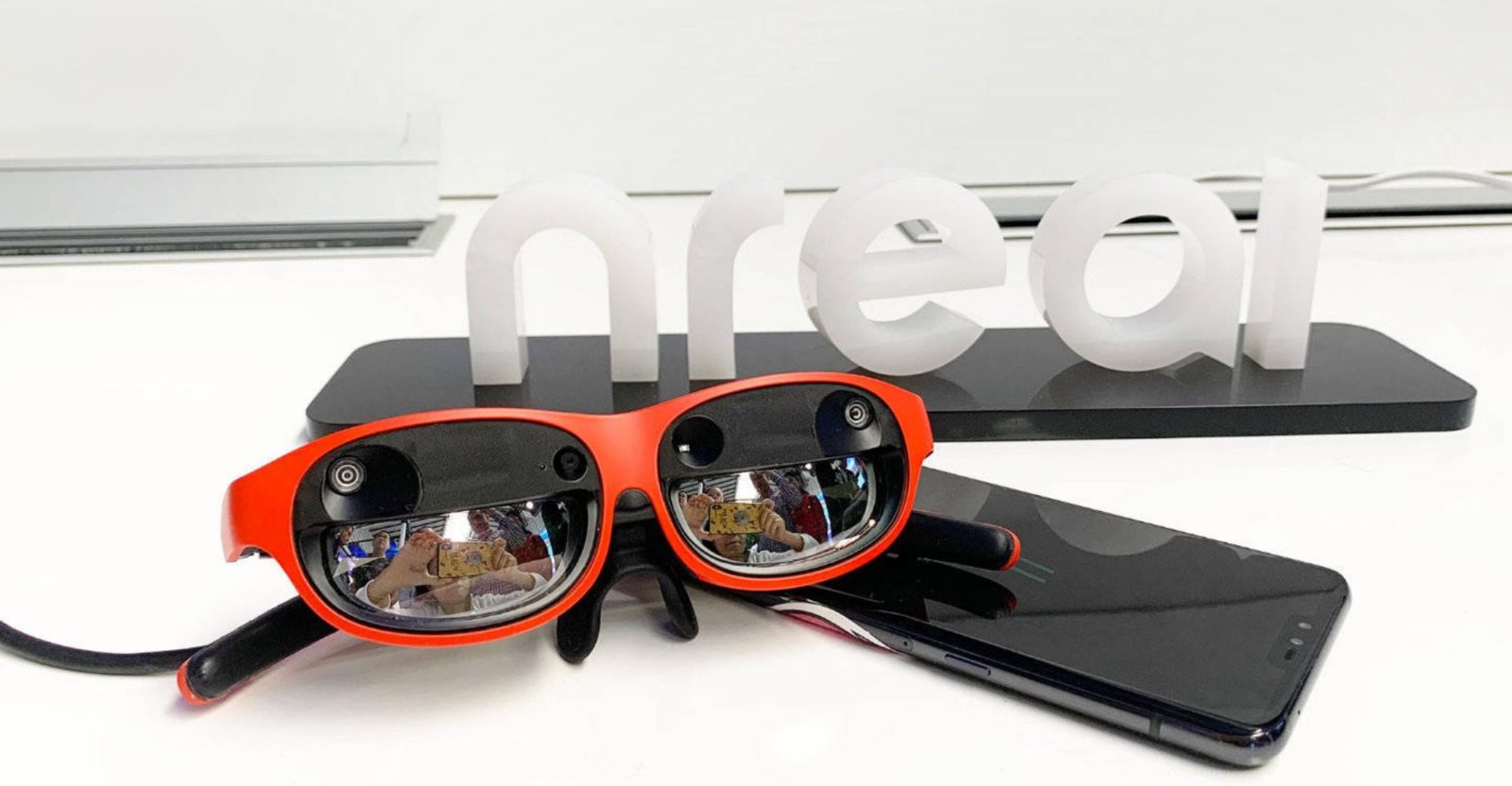Nreal, a Chinese producer of Augmented Reality (AR) glasses, has secured USD 100 million to support worldwide expansion and the development of new products. Augmented reality is a technology that enables digital pictures to be superimposed on real-world objects, and it is an area in which the world’s top technology corporations are developing. The fundraising round values Nreal at USD 700 million. The individual had not been permitted to talk publicly about the value. Nreal did not respond to a request for comment. Chi Xu, CEO of Nreal, told CNBC that the money will be used on research & development and also extending the company’s global reach. “China is a large market, and (we aim) to join that industry next year, as well as the United States and maybe other regions,” Xu added. Nreal has not yet introduced its AR glasses in China, but its main product, the Nreal Light, is available in a few places such as South Korea, Japan, and Spain.
Nreal Light is a set of little glasses that link to a smartphone. Users may then engage so-called mixed reality apps, which superimpose digital visuals on top of the actual environment. Several significant investors have backed the start-up, including Nio Capital, the investment company of electric automaker Nio, and venture firm Sequoia Capital China. “Having AR and EV (electric cars) combined can be quite fascinating moving forward… one thing I am certain of is that there will be more EVs on the roads. Individuals will spend more time in their automobiles, therefore combining AR with a vehicle will open up a slew of new possibilities.” Xu stated that Nreal will debut a new product next week but could not provide any further specifics. However, the CEO stated that the new eyeglasses will have a “totally new design” and will be lightweight, more ergonomic, and less expensive than the present Nreal Light model.
The new glasses will still connect to a phone, and Xu believes that the extra functions will inspire consumers to use them on a regular basis. Augmented reality has piqued the interest of global technology behemoths. Apple CEO Tim Cook has termed augmented reality as the “next big thing,” and the iPhone manufacturer is reportedly developing headgear. Facebook, Microsoft, Google, and other technology giants are also investing in augmented reality. Xu stated that he enjoys challenges from these giants. “I believe the best product will come out on top,” he said. On its headsets, Nreal uses an operating system named Nebula. Developers may create apps for Nebula, similar to how Apple does with iOS for iPhones, which users can then use with Nreal headsets. The presence of engaging apps on AR headsets will be critical to their success, and Nreal is attempting to entice developers to use Nebula.
The platform is presently used by 8,000 developers. Apple’s business strategy is based on it collecting a 15% to 30% share of gross revenues from software purchases made through its App Store. This is how it earns some of its service money. However, such a model has been criticized. In-app purchases could not be charged directly to consumers by developers. Epic Games, the creators of the popular video game “Fortnite,” filed a lawsuit against Apple in August of last year. A judge ruled earlier this month that Apple cannot prevent programmers from giving links or other forms of communication that lead consumers away from Apple in-app buying. “We’ve seen a series of differences in Apple’s business strategy. People will reconsider this business model in light of the recent litigation between Apple and Epic Games, according to Xu. “We should provide a more developer-friendly business model.” According to the CEO, this would imply decreasing the fees that an app store managed by Nreal might charge.
